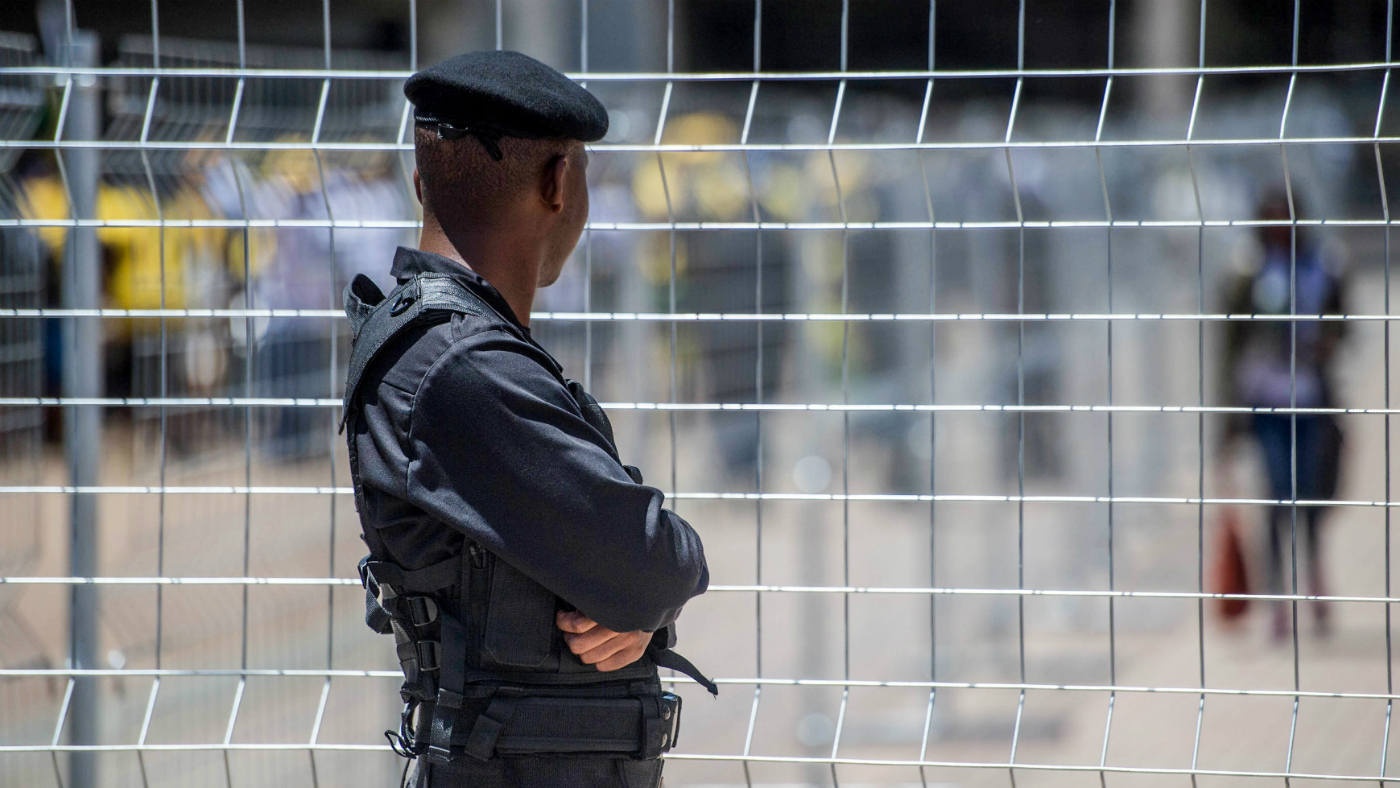UK criticised for South Africa terror warning
Government advice issued after an elderly couple were kidnapped in KwaZulu-Natal earlier this month

A free daily email with the biggest news stories of the day – and the best features from TheWeek.com
You are now subscribed
Your newsletter sign-up was successful
The Government has warned UK citizens travelling to South Africa of an increased risk of kidnapping and possible terror attacks in the country.
The travel advice was issued after two British-South African nationals were kidnapped in KwaZulu-Natal earlier this month by people suspected of having links to Islamic State, local media report.
A spokesman for the Hawks, an elite police unit investigating the kidnapping, said they had no evidence Islamist militants were behind the incident.
The Week
Escape your echo chamber. Get the facts behind the news, plus analysis from multiple perspectives.

Sign up for The Week's Free Newsletters
From our morning news briefing to a weekly Good News Newsletter, get the best of The Week delivered directly to your inbox.
From our morning news briefing to a weekly Good News Newsletter, get the best of The Week delivered directly to your inbox.
“The couple are still missing at this stage,” said spokesperson Lloyd Ramovha. “No ransom has been demanded. Our investigation so far has not revealed any links to terrorists, let alone IS.”
Security officials and experts say “there are no known Islamist militant groups operating in South Africa”, where Muslims make up less than 2% of the population, Reuters reports.
Jasmine Opperman, director of Southern Africa Operations at the Terrorism, Research and Analysis Consortium think tank, described the British travel advisory as “alarmist”.
“South Africa’s vulnerability for attack is there, but are there solid indications of attacks now as we sit here? There are none,” she told eNCA television.
A free daily email with the biggest news stories of the day – and the best features from TheWeek.com
Similar travel advice was given in 2016, with both the UK and the US warning of the possibility of terror attacks on upmarket shopping areas and malls in Johannesburg and Cape Town.
Foreign affairs spokesperson Clayson Monyela responded angrily to the move, accusing the embassies of encouraging panic with a false alarm.
-
 Why is the Trump administration talking about ‘Western civilization’?
Why is the Trump administration talking about ‘Western civilization’?Talking Points Rubio says Europe, US bonded by religion and ancestry
-
 Quentin Deranque: a student’s death energizes the French far right
Quentin Deranque: a student’s death energizes the French far rightIN THE SPOTLIGHT Reactions to the violent killing of an ultraconservative activist offer a glimpse at the culture wars roiling France ahead of next year’s elections
-
 Secured vs. unsecured loans: how do they differ and which is better?
Secured vs. unsecured loans: how do they differ and which is better?the explainer They are distinguished by the level of risk and the inclusion of collateral
-
 Epstein files topple law CEO, roil UK government
Epstein files topple law CEO, roil UK governmentSpeed Read Peter Mandelson, Britain’s former ambassador to the US, is caught up in the scandal
-
 Iran and US prepare to meet after skirmishes
Iran and US prepare to meet after skirmishesSpeed Read The incident comes amid heightened tensions in the Middle East
-
 Israel retrieves final hostage’s body from Gaza
Israel retrieves final hostage’s body from GazaSpeed Read The 24-year-old police officer was killed during the initial Hamas attack
-
 China’s Xi targets top general in growing purge
China’s Xi targets top general in growing purgeSpeed Read Zhang Youxia is being investigated over ‘grave violations’ of the law
-
 Panama and Canada are negotiating over a crucial copper mine
Panama and Canada are negotiating over a crucial copper mineIn the Spotlight Panama is set to make a final decision on the mine this summer
-
 Why Greenland’s natural resources are nearly impossible to mine
Why Greenland’s natural resources are nearly impossible to mineThe Explainer The country’s natural landscape makes the task extremely difficult
-
 Iran cuts internet as protests escalate
Iran cuts internet as protests escalateSpeed Reada Government buildings across the country have been set on fire
-
 US nabs ‘shadow’ tanker claimed by Russia
US nabs ‘shadow’ tanker claimed by RussiaSpeed Read The ship was one of two vessels seized by the US military